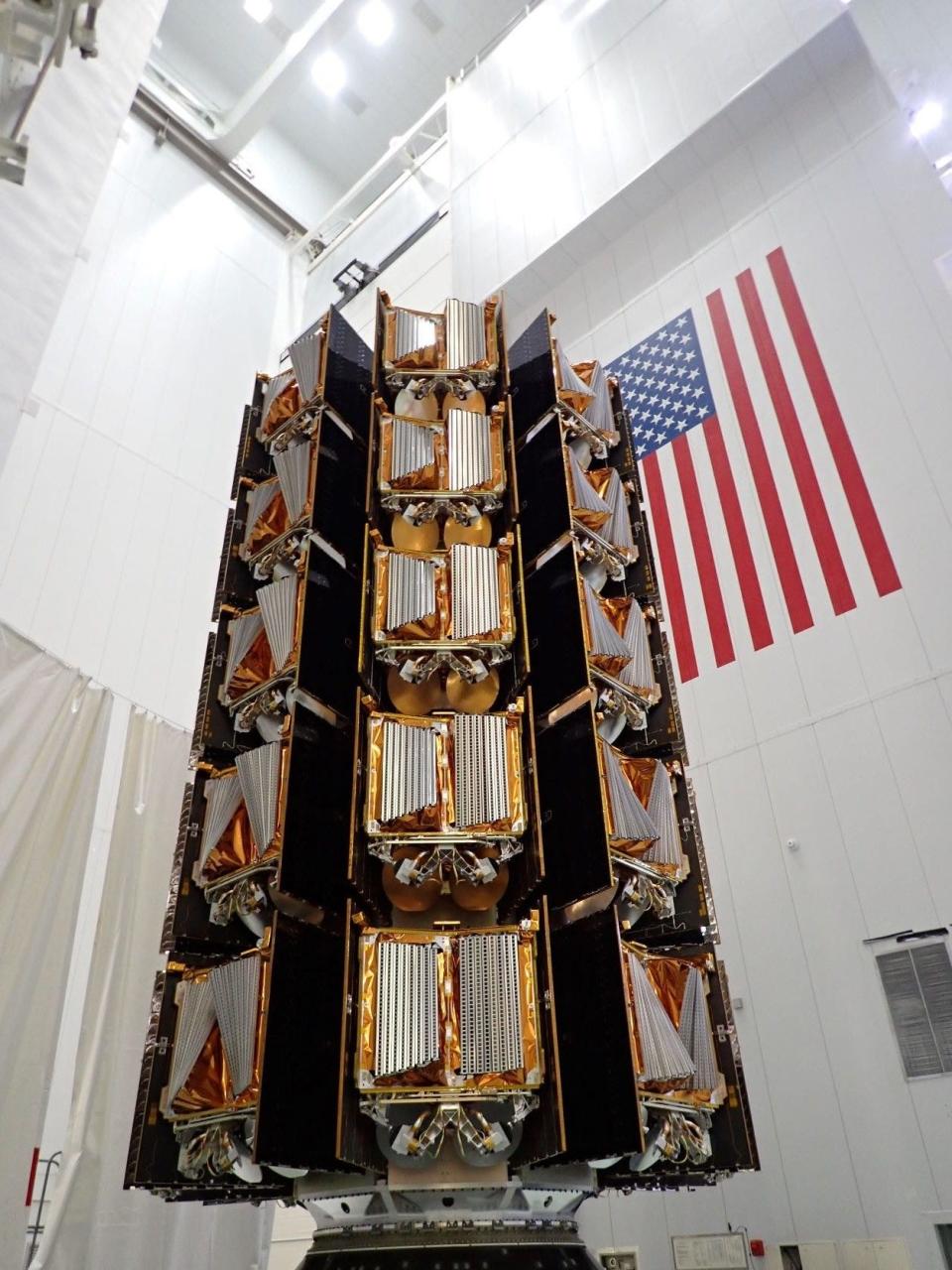Russian attack on US satellites as part of war with Ukraine would be devastating | Opinion
- Oops!Something went wrong.Please try again later.
Will Russian President Vladimir Putin extend his war against Ukraine into outer space? Will he attack our commercial satellites to avoid defeat on the ground?
Similar questions were considered and debated in national security circles long before Putin launched his war on Ukraine last February. However, such issues became even more pressing on Oct. 26, when Russian diplomat Konstantin Vorontsov addressed a United Nations committee meeting and bluntly stated that U.S. and allied civilian satellites may become targets for Russian attacks.
The threat from Russia
Vorontsov addressed the “latest developments in Ukraine.” He referred to the “use by the United States and its allies of civilian, including commercial, infrastructure elements in outer space for military purposes.” He then stated that “such actions in fact constitute indirect participation in military conflicts” and that, as a result, “[q]uasi-civilian infrastructure may become a legitimate target for retaliation.”

This Russian threat is layered on top of Putin’s threats to use tactical or battlefield nuclear weapons if he deems them necessary. Those nuclear threats have caused tremendous concern and have received much media attention — and rightly so. In contrast, the threats against space systems have received little public attention. It seems only a few trade publications and narrowly focused articles have addressed them.
Nothing in war could possibly have consequences more dire than those of nuclear weapons. Yet, if our civilian satellites were disabled, the effects on our society — particularly our economy — could be devastating.
Critical infrastructure
In 2013, President Barack Obama issued Presidential Policy Directive 21 on our nation’s “Critical Infrastructure Security and Resilience.” It defined “critical infrastructure” the same way it had been defined in the USA Patriot Act of 2001 — i.e., “systems and assets, whether physical or virtual, so vital to the United States that the incapacity or destruction of such systems and assets would have a debilitating impact on security, national economic security, national public health or safety, or any combination of those matters.”
PPD-21 designated 16 specific critical infrastructure sectors — for example, communications, energy, financial services, food and agriculture, and transportation systems. Interestingly, space systems were not included — an omission that confused many and has been seriously debated in national security circles ever since.
Attacks in outer space
The U.S. follows international law’s mandate that outer space should be used for only peaceful purposes. Yet we have always taken the position that self-defense is a peaceful purpose — for example, satellites for intelligence collection, communications, remote sensing, etc. Furthermore, we have considered various means of protecting our space systems, including anti-satellite weapons that physically destroy an adversary’s satellites and electronic-based means of denying the adversary’s capabilities (“tactical denial”). When Vorontsov stated Russia’s threat at the U.N., he was referring to both of these types of Russian attacks against commercial satellites. (Russia has clearly demonstrated its ASAT capability. The U.S. does not favor ASATs because of the space debris such attacks produce, causing hazards for one’s own satellites as well. However, Russia doesn’t seem to care about space debris.)
Hear more Tennessee voices:Get the weekly opinion newsletter for insightful and thought-provoking columns.
Civilian commercial satellites have shown themselves extremely useful for a wide variety of purposes — many of which can be useful to a battlefield combatant, as in Ukraine. Yet Russia’s threat to attack commercial satellites carries implications far beyond the battlefield. Those civilian space systems, even though not expressly designated among our 16 critical infrastructure sectors, certainly satisfy the “critical infrastructure” definition. If Americans were denied their use, the debilitating impact would be the same.
In their Geneva summit in June 2021, shortly after the ransomware attack on Colonial Pipeline in the U.S., President Joe Biden told Putin that cyberattacks on critical infrastructure should be viewed as “off limits.” He reportedly gave Putin a list of 16 such sectors, apparently the same list discussed above. There was no indication that civilian space systems were discussed.
We must make it clear to Russia that the U.S. views our civilian space systems, including commercial satellites, as critical and off limits. Any attack on them, whether by kinetic or electronic-based means, would be viewed in the same manner as an attack on any of the 16 critical infrastructure sectors. For the sake of deterrence, we must make it clear that we would defend them and would respond with all appropriate measures.
Col. Wayne E. Dillingham, USAF (retired) taught space law at the U.S. Air Force Academy. Later, he was the legal advisor to U.S. Space Command. He now resides in Murfreesboro.
This article originally appeared on Knoxville News Sentinel: Opinion: Russian attack on US satellites would be devastating

